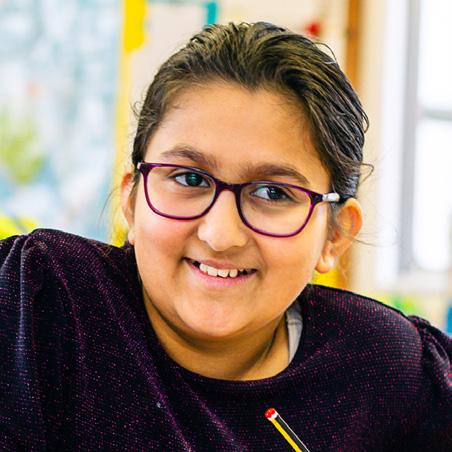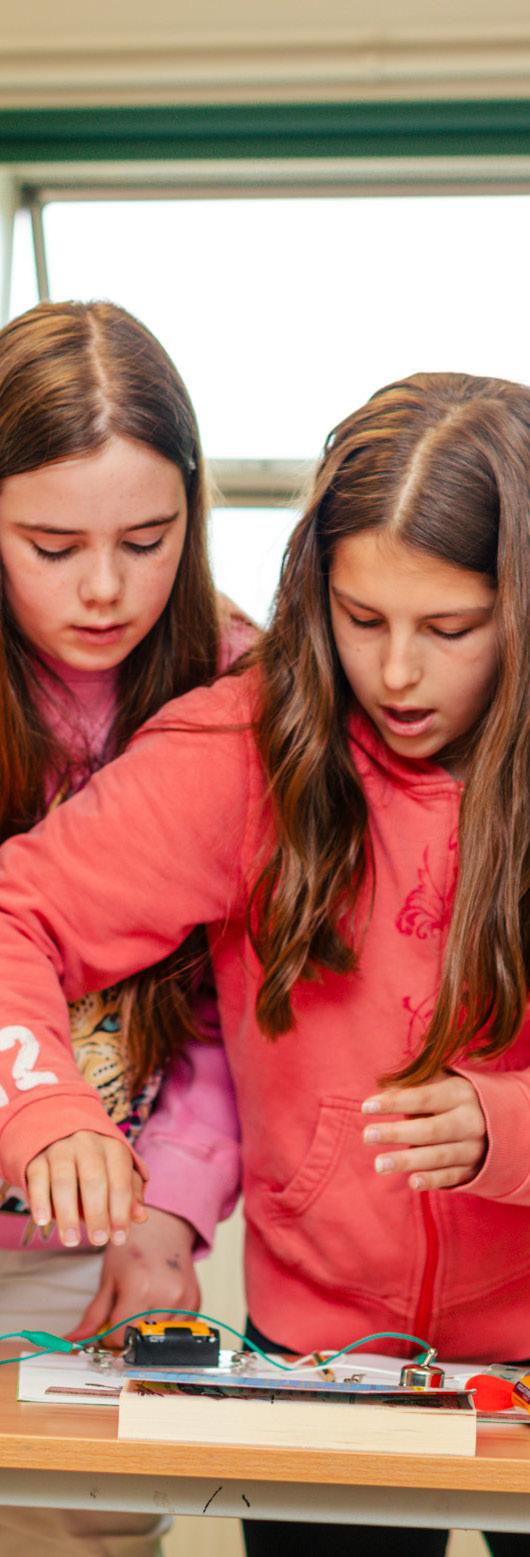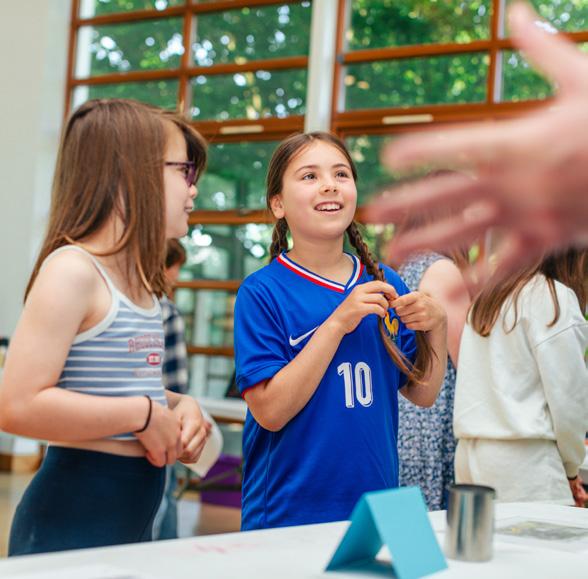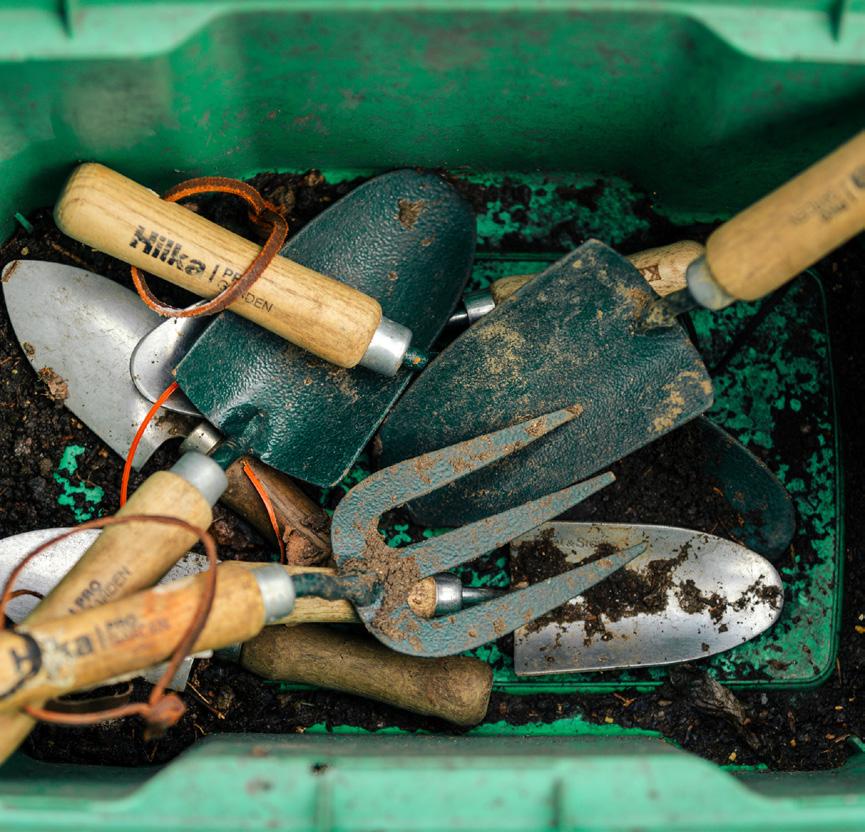




The Junior School follows a one-week timetable with a topic-based curriculum. Subject specific learning will, in the main, be approached through the lens of the topic.
Below you will find a summary of the main subjects covered in D Group (Year 6) and the amount of time dedicated to them each week. The class teacher is the main lead for the subject except for those subjects which are led by specialist teachers, detailed below.
Our topics constantly evolve and change as we respond to the interests of the children. However, examples of term topics in recent years include:
Autumn Term: Conflict (World War II)
In the autumn term we look at conflict, specifically World War II. We learn about why the war started, the declaration of war, evacuation, the blitz, D-Day, rationing, children’s pastimes, and what happened at the end of the war. Within our study of this topic, we use English and art to encourage students to think about what it may have been like to live in that era. Traditionally, we have a day where the children experience a day at school as an evacuee.
Spring Term: Migration
Our spring term involves a brief flight through British history, looking at the variety of invaders and settlers who have landed on our shores. We have ‘mini focuses’ on the Anglo Saxons, Vikings, Normans, and Tudors.
The term culminates with a weeklong visit to York to experience our learning in a different way, giving a real life feel to our students’ theoretical learning.
Summer Term: Ocean
In the summer term, we will embark on “Oceans” topic. We’ll explore the fascinating zones of the ocean, from the sunlit surface down to the mysterious deep. We’ll delve into the historical significance of the Titanic, and investigate the incredible world of the deep sea, including the controversial topic of sea mining. Students will also learn about the vital role of canals and trade routes in global commerce, and discover the modern challenges posed by modern privacy.
Subjects over each week
This graphic represents a typical week in the Year 6 curriculum. However, we adapt and change daily depending on the needs to our students so these timings can occasionally be flexible.

Iain Wheeler
4 hours
The bulk of our English study is inspired by our topic. The students are immersed in the content, enabling them to fully understand what they’re writing about and stimulating their creativity. Grammar is taught both explicitly and through creative writing, including sentence structure, precise vocabulary choices, more advanced punctuation, and linking paragraphs. Spellings are taught collaboratively with a different pattern each week.

Iain Wheeler
5 hours
In preparation for senior school, we work hard to consolidate place value and number skills, helping students to feel confident with manipulating questions and selecting the most efficient strategy to solve a problem. We have an overarching focus on fractions, decimals, and percentages as well as developing the children’s skills in algebra. Later in the year, we look at geometry, statistics, and ratio.

Katie Wright
2 hours
In science, students learn all about the human body, including circulatory, respiratory and digestive systems before looking at light, classification, and electricity. Lessons are both theoretical and practical and we encourage children to think scientifically: to think of questions, make hypotheses, and then test them, justifying their results with scientific theory.


Katie Wright
1 hour
We practise a range of skills in computing, ranging from blogging to creating a printed advertising campaign. In an ever-changing world, we aim to understand how AI works and discuss the implications and moral impact of developing technologies. Within lessons, children are taught how to stay safe online and what their obligations are when it comes to respectful online behavior.
Iain Wheeler
2 hours
In history, we look at a variety of sources and analyse the reliability and effectiveness of different types of sources. We become historical detectives and see what information we can get from artefacts. There is a lot of storytelling in terms of understanding key points in history also. We look at maps and scales, also considering human impact on geography and how advances in technology can impact an area.
Iain Wheeler 2 hours
Art and design and technology in D Group is exclusively inspired by our topic work. We use a range of media including watercolours, acrylics, dyes, and silhouettes. In our study, students create 3D structures and learn how to draw intricately. We also practise needlework using felt and learn how to mend damaged clothes. Children are guided in how to practise techniques, but they also have the freedom to experiment and be creative.



Iain Wheeler
1 hour
PSHE (Personal, Social, and Health Education) and RSHE (Relationships, Sex, and Health Education) are taught with the understanding that the children will be transitioning to senior school at the end of the year. We learn about taking responsibility and foster increased independence as well as self-motivation and ambition. We talk extensively about resilience and how to take risks appropriately and safely. Lessons are taught mostly through discussion and drama with lots of group work.
Edel Davies
1 hour
Through games, songs, mime, dance and projects, children develop core French vocabulary, structures and grammar. In this transitional year towards senior school, greater emphasis is placed on student-led learning, with pupils taking ownership of routines to revisit and build upon prior knowledge. Engaging topics provide the context to revise and expand grammar, including irregular present tense verbs, an introduction to past tense verbs, conjunctions, complex negations and imperatives. While listening and speaking remain central, pupils also begin to explore features of written French through short texts and produce their own simple writing.
Ann Marie-Knight
1 hour
Lots of class singing happens in D Group, with harmony and an extended range. Students perform challenging pieces together, using all the instruments available to them. Composition activities are a key component this year and include topics such as composing to a brief, creating lyrics and a melody, and understanding and developing musical structures (ternary form and verse/chorus).




1 hour
Starting in the Autumn Term, D Group students take part in weekly lessons in the Senior School, rotating a carousel of subjects each half term, to help them acclimatise learning in a Senior School environment, moving to new areas for different lessons, and meeting members of staff who teach in the Senior School. Computing, cookery, and pottery are taught each half term with students taking art in each subject twice across the whole year. Students are accompanied to and from the Senior School by Junior School staff.
Lyn McGregor
1 hour
Students will participate in the following activities to develop the fundamental skill development such as fitness, outdoor and adventurous, activities, creative dance, gymnastics, tennis, and athletics. These skills, alongside those taught during their games lessons, are supported with after school practices and the opportunity to play competitive fixtures.
Lyn McGregor, James See & Maggie Bilcliffe 1 hour 30 minutes
Students follow a programme of football and netball (autumn term), rugby and hockey (spring term), and cricket and rounders (summer term). Students think about how to use tactics and strategies to outwit the opposition.
They also learn to plan basic principles of attack and make informed decisions during small-sided games.
Additionally, students learn to understand the effect of exercise and develop an attitude of fair play, sportsmanship, and enjoyment.
Jenny White
45 minutes + changing time
Throughout their swimming lessons, D Group focus on building stamina. Within the year, students learn how to swim 200m in effective front and back crawl. Students also refine strokes (preferred stroke) to a precompetitive (proficient) level. At this age, students may participate in other local external clubs.
Lydia Somerville 1 hour 30 minutes
Forest School sessions in D Group focus on vocabulary. Students will practise using feminine and masculine nouns and adjectives, using adjectives to compare things like sticks and birds, the singular and plural forms of nouns, make negative and affirmative sentences, and give simple instructions using commands.
Forest School at St Chris is a child-centred, inspirational process that gives our young learners opportunities to challenge themselves, develop confidence and increase their self-esteem through hands on learning experiences in a natural environment. Sessions are based on a fundamental respect for students and for their capacity to instigate, explore and maintain curiosity in the world around them. Most importantly, our students develop a deep and meaningful connection to the natural world and understand their place in it.
Forest School inspires a deep and meaningful connection to the world, where students challenge themselves, develop confidence by solving real-world issues, and build self-belief and resilience.




At St Chris, we recognise that every child begins their educational journey from their own starting point. Our focus is on deep, meaningful learning and engagement, not just academic results. We teach to the top of the class, setting ambitious goals for all students, and provide the support and challenge they need to reach their potential. Each child is encouraged to grow academically, socially, and personally, building confidence and developing their strengths.

Progress is monitored continuously through informal observations and an assessment sheet for each child. Teachers annotate skills as they are demonstrated, building a clear picture of each child’s development, highlighting strengths and areas to support. Half-termly meetings with the Junior School Head ensure tailored actions for stretch or additional scaffolding. Small class sizes and support from Teaching Assistants allow targeted group work when needed. While we follow the national curriculum, we have the flexibility to focus on areas that benefit each child’s learning. Academic reports are sent home twice a year, alongside termly parent consultations.
We use STEER Tracking (Years 3–12) to monitor and support students’ mental health and wellbeing. This evidence-based tool helps children develop self-regulation and identifies hidden social-emotional risks, allowing early intervention and personalised support.

In the Junior School, homework is designed to be meaningful, manageable, and linked to the term’s topic. Children receive a list of age-appropriate enrichment activities and typically choose three or four to complete. Activities may be creative, practical, or researchbased, and encourage family involvement. Standard weekly tasks include reading, spelling, and numeracy, with TimesTables Rockstars used across year groups. Deadlines are set for the end of each term, and teachers are available for support if needed.
We value student voice and leadership at every stage.
The School Council includes around ten students from Reception to Year 6, supported by the Pastoral Lead. It is nonhierarchical, giving all voices an opportunity to be heard.